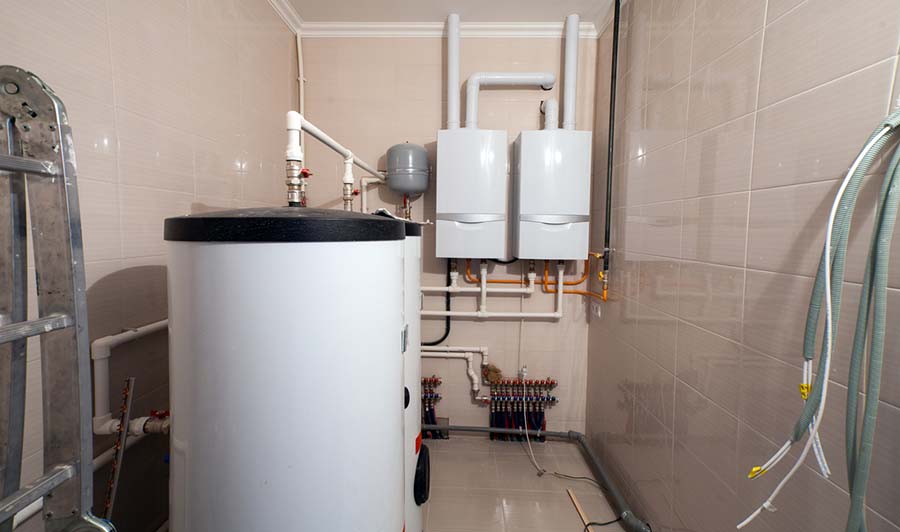Methods to Address the Most Common Heater Urgent Issues
Methods to Address the Most Common Heater Urgent Issues
Blog Article
How do you really feel about Common Hot Water Heater Problems?

A hot water heater is just one of the most essential fundamental appliances that can be found in a home. With water heaters, you don't require to undergo the stress and anxiety of home heating water by hand every time there is a need to take a bath, do the laundry, or the recipes. However, there is always an opportunity that your hot water heater would act up as with the majority of mechanical devices.
It is very important to note any kind of little breakdown as well as tackle it quickly prior to things leave hand. A lot of times, your hot water heater starts to malfunction when there is an accumulation of sediments as a result of continual use. As a precaution, routine flushing of your hot water heater is recommended to avoid sediment accumulation and stop functional failure.
Usual water heater emergencies and also how to handle them
Dripping hot water heater tank.
In this circumstance, you should turn off your water heating system, allow it to cool down, as well as thoroughly look for the source of the trouble. At times, all you require to do is to tighten a few screws or pipe links in cases of minor leaks. If this does not work as well as the leakage lingers, you might need to use the solutions of a service technician for a proper substitute.
Fluctuating water temperature.
Your water heating unit could start generating water of different temperature levels generally ice chilly or hot warm. There might be a demand to replace either the heating or the thermostat system of your water heating system.
Too little hot water
It might be that the water heating system can't sustain the warm water demand for your apartment or condo. You could update your water heating unit to one with a bigger capability.
Discolored or smelly water
When this takes place, you need to recognize if the concern is from the container or the water source. If there is no amusing odor when you run cold water, after that you are particular that it is your water heating system that is defective. The smelly water can be created by corrosion or the buildup of bacteria or sediments in the water heating system tank.
Conclusion
Some property owners disregard little caution as well as minor faults in their hot water heater system. This just results in further damages as well as a feasible complete failure of your home appliance. You need to deal with your water heater mistakes as quickly as they come near avoid more costs and also unnecessary emergency difficulties.
With water heating systems, you do not require to go via the stress and anxiety of home heating water by hand every time there is a demand to take a bathroom, do the washing, or the recipes. Your water heater might start generating water of various temperatures generally ice hot or cool warm. It might be that the water heater can not support the hot water need for your apartment or condo. If there is no funny smell when you run chilly water, then you are particular that it is your water heating unit that is faulty. The smelly water can be created by corrosion or the accumulation of germs or debris in the water heating system tank.
Common Water Heater Issues and What You Should Do
What Type of Water Heater Do You Have?
Before we begin it’s first important that you identify the type of water heater you have on your property. There are two main types of water heaters out there: conventional and high efficiency.
Both of these types of products typically use either gas or electricity to heat power. There are also solar water heaters that use a thermal collector on the roof or yard to heat the water.
While these models are not as common, they can cut heating costs in half. In this article, we will focus on conventional and high efficiency.
How Do My Electric and Gas Water Heater Work?
Though they look similar, electric and gas water heaters work very differently. It’s important to know their basic function because often problems can be specific to the heating source.
In the electric model, a thermostat on the side of the machine detects the temperature of the water in the tank. When the temperature needs to rise electricity flows to a heating element suspended in the water.
Gas models also use a thermostat device — typically with a mercury sensor at the tip and an additional sensor called a thermocouple. The thermocouple detects whether the pilot light is on and controls the flow of gas.
When the thermostat drops below the appropriate level gas is released which becomes ignited by the pilot light. The flame heats the bottom of the water tank which causes hot water to rise and cold water to drop.
This natural circulation continues until the water reaches the desired temperature. Then, the thermostat triggers the gas control valve to shut off the flow of gas.
What Are the Most Common Issues and How Do You Fix Them?
https://happyhiller.com/blog/common-water-heater-issues-and-what-you-should-do/

As a passionate reader on Is Your Water Heater Leaking?, I think sharing that piece of content was essential. Appreciated our post? Please share it. Help others discover it. Thank you so much for taking the time to read it.
Hot water issues? Report this page